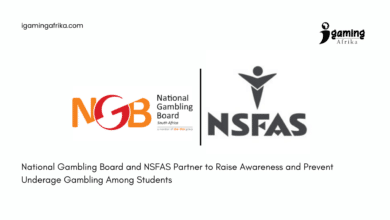Unlocking Growth and Innovation in African iGaming with Technology: Podcast with Leon Mutua

Africa’s iGaming space is growing fast, thanks to mobile phones, a young and tech-savvy population, and better digital infrastructure. But it is not without its challenges. In Episode 11 of the iGaming AFRIKA Podcast, we caught up with Leon Mutua, Key Account Manager at Sofascore, to unpack it all. Leon shared insights into what sets African players apart, why local strategies matter more than ever, and how AI and crash games are changing the game for operators and users alike.
Leon Mutua emphasized that Africa isn’t a one-size-fits-all market. He highlighted stark contrasts between two of Africa’s largest gaming markets. “I can use Nigeria and South Africa, which are completely different markets. Nigeria is more volume based, whereas South Africa is more value based. And what I mean by that is that the South African betting ticket size is four times higher than that in Nigeria. But Nigeria has five times more users who are playing on the platforms.” These distinctions, he explained, demand tailored business development strategies.
“For Nigeria, you kind of want to go for a volume-based acquisition model because you are trying to reach wider people. So you will go mobile first, and try to get to as many devices as possible while at the same time explore the option of aggressive bonus structures because over there, it is a numbers game. You really just need as many people as possible. It is a giant fishnet. You just want to try to hook them in.”
In contrast, South Africa requires a more refined, high-value approach, “You want to make sure that you have a VIP, retention focus. Because in a market like South Africa, what you would get in terms of profits generated from 15,000 players, you would need about 38,000 players in Nigeria to get the same amount of return,” he explained. According to Leon, understanding these nuances is essential: “You cannot go in, blindly waving a sword because you might end up chopping your own fingers.”
Beyond Africa’s more established iGaming markets, Leon sees significant untapped potential in four emerging territories: Uganda, Zambia, the DRC, and Ghana. These countries, he explains, share several promising characteristics that make them ripe for growth. According to him, these countries share a key strength in their young populations, which creates strong conditions for growth and is further supported by the ongoing technological developments. Both governments and private sectors in these countries are making substantial investments in digital infrastructure, particularly in enhancing internet accessibility which Leon explained will bring in some unaccounted volume of players.
Despite the strong growth indicators, many emerging African markets remain relatively untapped, with few dominant operators and limited platform competition. This lack of saturation presents a rare opportunity for new entrants, particularly those offering innovative services, data-driven tools, or specialized products tailored to local needs. Uganda, in particular, stands out in Leon’s analysis as a prime example of high potential meeting low adoption. “The compound annual growth rate for Uganda is about 13%. Only 20% of the operators there are using sports data tools,” he noted.
For Leon Mutua, regulation is fundamental. “Regulation is not only important; I think it is necessary,” he asserted, emphasizing that effective regulation should act as a partner rather than a barrier. “It is a collaborative figure,” he insisted, advocating for alignment between operators and regulators to ensure a balanced, thriving market. He contrasted two real-world examples to make his point: Rwanda’s abrupt decision to raise taxes from 13% to 40%, versus Ghana’s removal of a 10% tax. The takeaway, he said, is that mutual understanding is essential. “The regulator is looking at the operators like… they are just here to smash and grab. And then the operators are looking at their regulators like some kind of unrequested referee who’s just come to spoil the game.” For the iGaming ecosystem to thrive, both sides must meet on common ground.
Mutua identified three major innovations transforming Africa’s iGaming space: Artificial Intelligence, micro-betting, and crash games. He emphasized that AI adoption is no longer optional warning that operators who fail to integrate it into their systems risk falling significantly behind. He also noted the growing popularity of micro-betting, especially in South Africa where a significant portion of wagers are now placed on real-time events like corners and penalties. This, he explained, aligns with Africa’s mobile-first nature, as the continent largely bypassed the desktop era. Similarly, crash games, fast-paced and mobile-friendly are becoming increasingly popular in East Africa as players seek more dynamic and engaging betting experiences.
He also pointed to the disruptive role of cryptocurrency, highlighting its ability to enable seamless, cross-border transactions from mobile devices. He referenced platforms that now allow users in Africa to participate in international lotteries, which would have been nearly impossible through traditional payment channels. In addressing responsible gaming, he proposed a shared data model based on Kenya’s credit reference bureau system. This model would allow operators to access player risk profiles, helping to detect harmful behavior and enforce self-imposed betting limits across platforms. He argued that such a system would protect both the players and the industry’s long-term integrity.
Leon Mutua noted that one of the biggest misconceptions about iGaming is the belief that it’s unethical or shady. “People think it is like a bunch of people behind a building smoking cigarettes and, like, ‘Why do we steal some money?’ That is not really what it is,” he said. In reality, he explains, the industry is highly regulated, deeply technical, and increasingly aligned with the fintech sector in how it operates and innovates.























